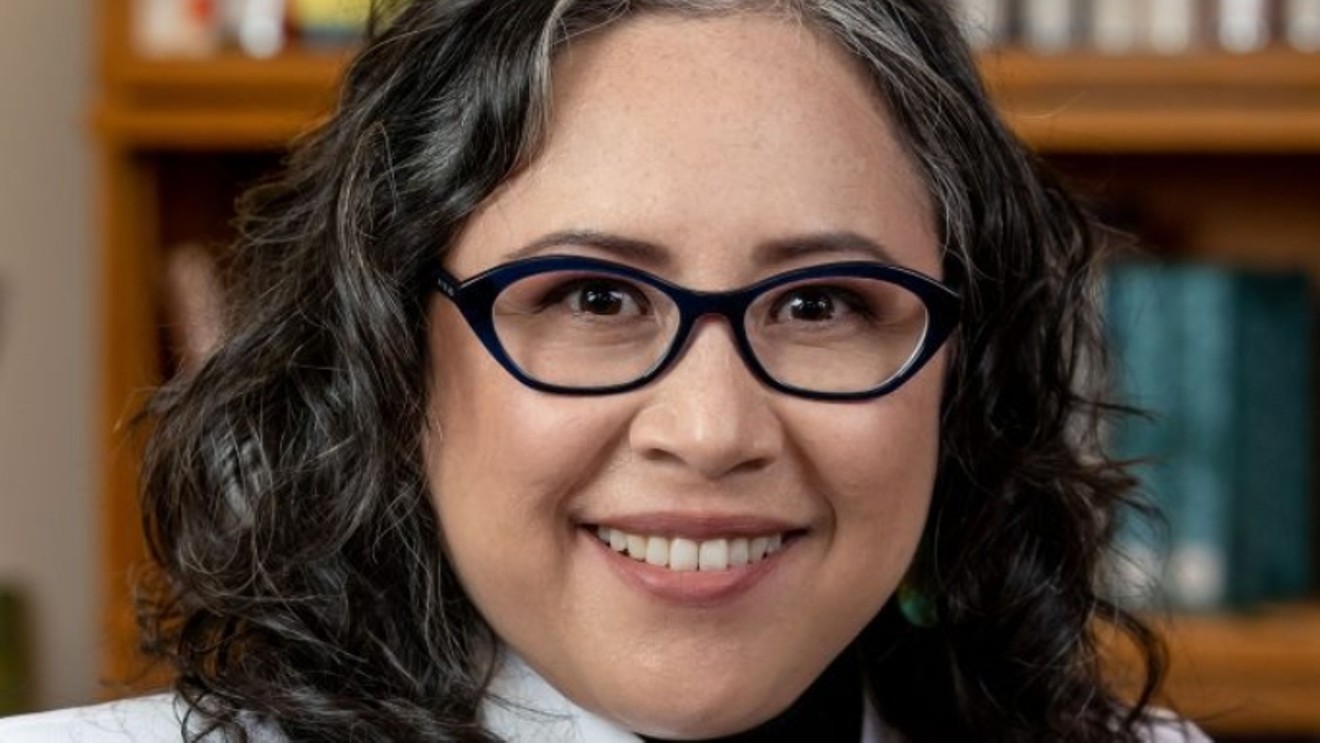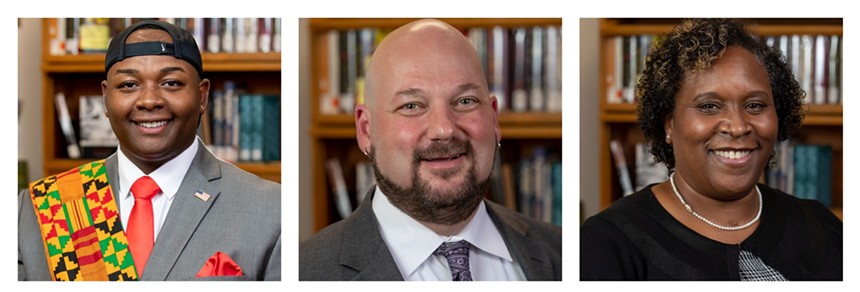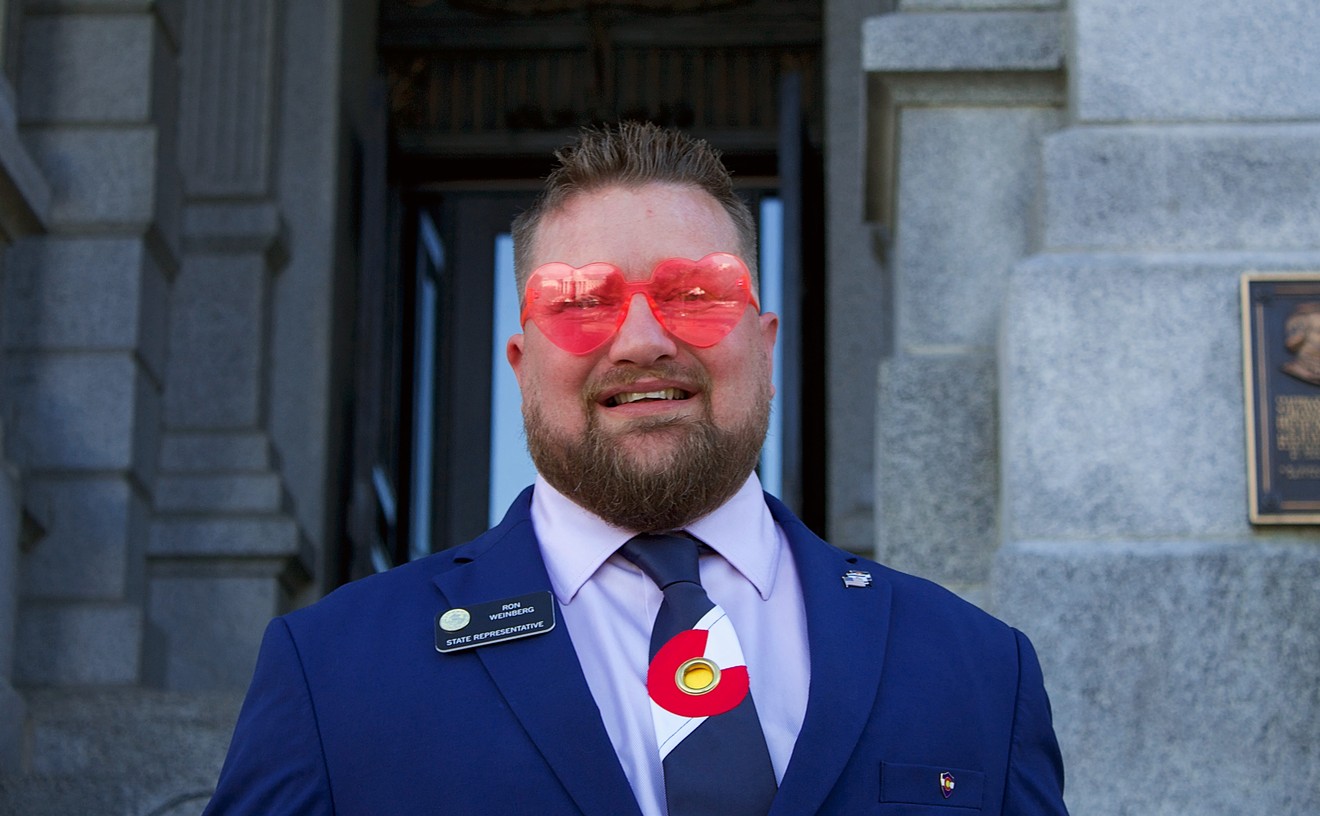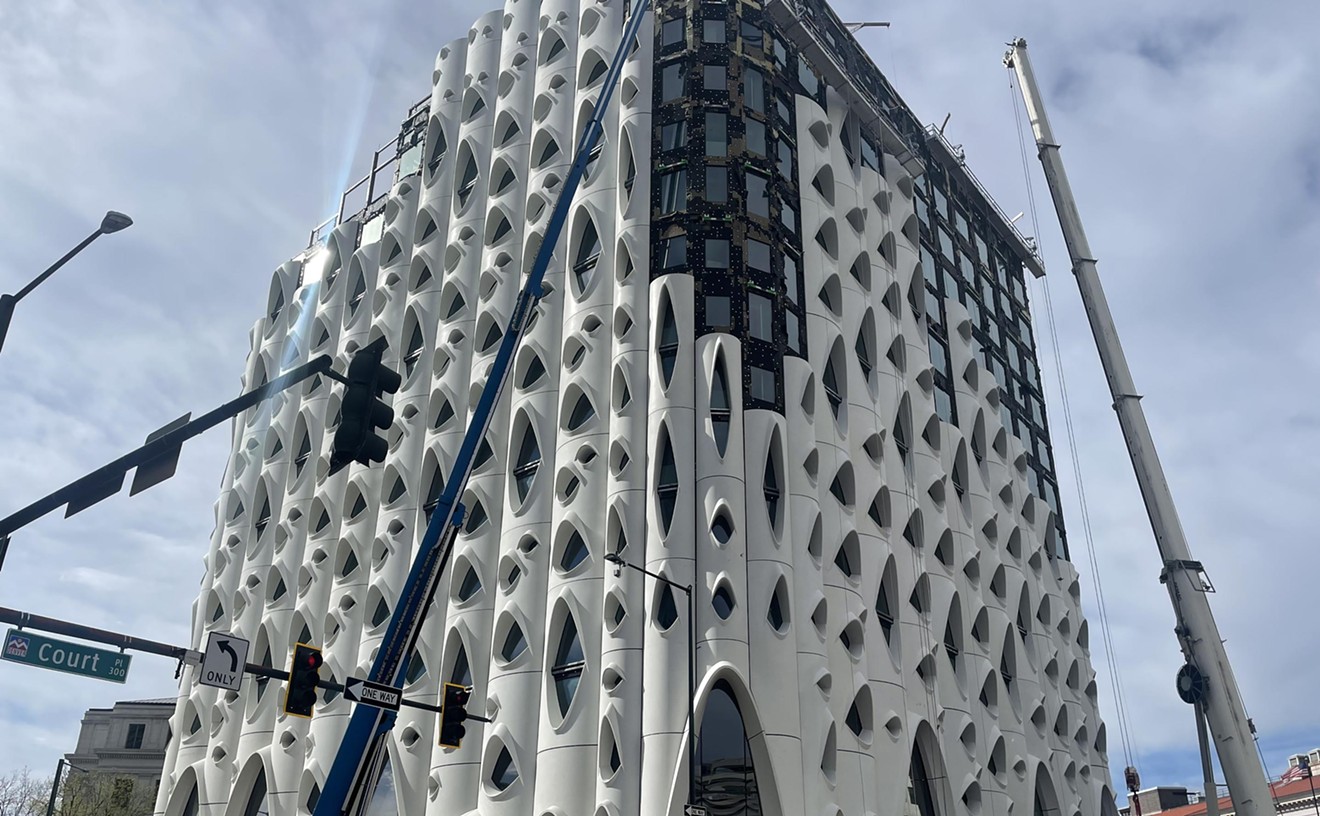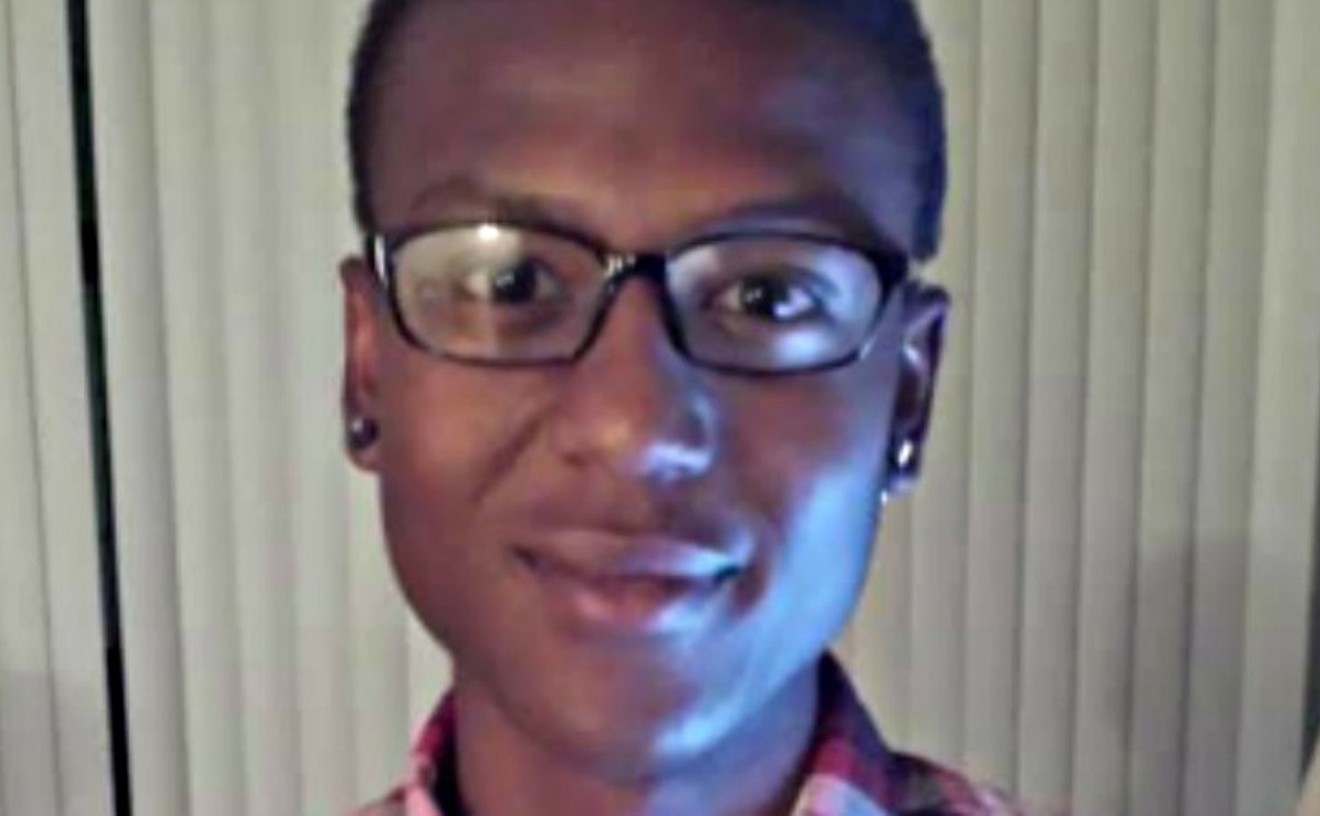At 4:30 p.m. today, June 16, the Board of Education for Denver Public Schools will hold a public meeting following a daylong retreat. Both sessions could be contentious, according to District 2 representative Xóchitl "Sochi" Gaytán, who believes that two of her colleagues, board vice president Tay Anderson and at-large member Scott Esserman, may be maneuvering to replace her as board president or at least hobble her ability to do the job.
They've already engaged in intimidation and more against her, she says: "They've attacked me verbally, they've attacked my leadership, and they've shown sexism and their misogynistic ways."
The retreat and meeting are taking place one week after a laborious June 9 board vote that ultimately elected professional mediator Charmaine Lindsay to fill the District 5 seat recently vacated by Reverend Bradley Laurvick, who's moving; Anderson and allies Esserman and District 4 member Michelle Quattlebaum (eventually joined by District 3's Carrie Olson) supported Lindsay over former Denver teacher Julie Bañuelos, who was backed by Gaytán and had come in a close second to Lauvrick in the 2019 board race. But she was also a vocal critic of Anderson regarding anonymous 2021 sexual assault accusations against him; while an independent investigation didn't find evidence to prove those claims, the board censured him for what members saw as questionable social media posts aimed at critics.
Days after Lindsay's election, on June 12 Anderson appeared alongside Quattlebaum on the regular Facebook Live program hosted by Brother Jeff Fard. During the show, Anderson made a number of comments that Gaytán views as evidence that he would either like her to be replaced as board president or to have her powers minimized. "I'm down to have the conversation about how do we decrease and decentralize the role of the president and empower it in the board as a whole," Anderson said at one point.
At another, he announced: "When the next election rolls around, I'd love to see for the first time in a decade a Black woman to lead this Board of Education." Quattlebaum is Black.
Gaytán's road to the Denver school board began when Denver Public Schools announced that it planned to close the middle school her oldest son attended — and after the family chose a new school for him, they learned that facility was slated for a shutdown, too. Her first run for the board, in 2017, was unsuccessful, but she tried again in 2021 and was elected with strong support from the Denver Classroom Teachers Association, the main union representing DPS educators. Shortly thereafter, "I was voted in as president, but that didn't come without controversy. Other people were looking to be voted in as president, and that's when the verbal abuse began from two specific male boardmembers," she says, name-checking Anderson and Esserman.
The conflicts with Anderson caught Gaytán by surprise, she says, since she had taken a neutral position with regard to censuring him. "I was looking at it from the perspective of a Latino mother and thinking about my sons facing scrutiny such as that," she explains. "I think it's important that we treat people with respect and dignity and look at their humanity before starting to point fingers.
"I truly believed that since all of the boardmembers were backed by the union, we would be able to walk in and start moving toward shared goals of removing or dismantling oppressive systems in Denver Public Schools and replacing them with more equitable structures, so that our students across the district, and especially our most marginalized students, would be served equitably," she continues. The vote extending the contract of superintendent Alex Marrero struck her as a step in the right direction.
However, beefs arose over the way the school board's business is conducted. "We call it the policy governance model," Gaytán says. The approach sets overarching goals but limits the ability of boardmembers to encroach on the superintendent's efforts to accomplish them, and "things started to deteriorate because Scott Esserman and Tay Anderson don't care for the model. They find it too restrictive and they feel certain aspects of it could be racist" — points made by Anderson during the Brother Jeff interview.
The policy governance model calls on Gaytán to make sure boardmembers are following the policy and informing them when they've missed the mark. But her efforts in this regard haven't always gone well, she admits.
Last month, for example, "Tay Anderson and Scott Esserman went to a community meeting at Manual High School to make certain demands of employees there," she reveals. "That overstepped Dr. Marrero's operational work, because they weren't supposed to make demands of his employees and tell them what to do. But when I approached Scott Esserman about this behavior and how he was violating board policy, he made very verbally abuse remarks to me, accompanied by a demeaning tone. He said my interpretation of policy was 'garbage,' and 'I regret voting for you — you have failed as president.' He also said my authority over him was 'imaginary.'"
Gaytán wrote up her account of this episode in an email — and she did likewise after a confab with Anderson and several others during which she says Anderson began yelling after being told a group of Black students had to address the board via Zoom rather than in person because a rule put in place to deal with COVID-19 issues had not yet been changed; the decision was later reversed.
Because of such exchanges, Gaytán says she no longer feels safe meeting alone with either Anderson or Esserman.
Neither Anderson nor Esserman have told Gaytán precisely what they have planned for today's retreat. "They've added two or three items to the agenda, and it just so happens those items are about policies with language that says something to the effect of 'the president has the sole authority....' So they're looking to change some of that language because that's their way of trying to remove authority from the current president," she says.
As for the public board meeting, "Tay Anderson has indicated on social media that he's looking to make a motion to redo the officers' vote once we have the new District 5 candidate," she says, referring to Lindsay.
"If they succeed in redoing the officers' vote and replacing me as president, I will remain as District 2 representative on the board — and I hope to continue to engage with my colleagues in a positive way as a strong leader representing my district," she says. "It's important to remain a voice for the Indigenous, Chicano, Latino and Mexicana communities. I come with the lens of being a Latina boardmember and the only one representing those voices, but I care deeply about all other student communities regardless of their ethnic backgrounds — and certainly our most marginalized students."
Could political infighting and power plays turn the DPS board into a mirror image of the Douglas County School Board, which has been in chaos for months? Gaytán doesn't dismiss the idea. "I'm concerned that we're headed down a similar path of what we hear from the media about other school boards being dysfunctional," she acknowledges. "That's one of the reasons why I as president have been abiding by the policy governance rules — because I want to ensure that our board as a whole is speaking with one voice and moving in unison, so that we can show the public we're functional. We're looking to do important work that Dr. Marrero is depending on and the students across the district are depending on."
Anderson and Esserman have not responded to outreach from Westword, but a representative from a public-relations firm "working with several organizations within the DPS ecosystem" suggested that this story not be published until after today's retreat and board meeting, which are slated to include "an important vote around the Executive Limitations, or EL."
Click to read Gaytán's descriptions of a May 13 meeting with Tay Anderson and a May 23 meeting with Scott Esserman. Below, see the appearance of Anderson and Quattlebaum on the Brother Jeff Facebook Live program. The discussion of decentralizing the role of the DPS board president can be found at approximately the one hour, 24 minute point, while the comment about a Black woman leading the board is heard at around one hour, 34 minutes.
[
{
"name": "Air - MediumRectangle - Inline Content - Mobile Display Size",
"component": "12017618",
"insertPoint": "2",
"requiredCountToDisplay": "2"
},{
"name": "Editor Picks",
"component": "17242653",
"insertPoint": "4",
"requiredCountToDisplay": "1"
},{
"name": "Inline Links",
"component": "18838239",
"insertPoint": "8th",
"startingPoint": 8,
"requiredCountToDisplay": "7",
"maxInsertions": 25
},{
"name": "Air - MediumRectangle - Combo - Inline Content",
"component": "17261320",
"insertPoint": "8th",
"startingPoint": 8,
"requiredCountToDisplay": "7",
"maxInsertions": 25
},{
"name": "Inline Links",
"component": "18838239",
"insertPoint": "8th",
"startingPoint": 12,
"requiredCountToDisplay": "11",
"maxInsertions": 25
},{
"name": "Air - Leaderboard Tower - Combo - Inline Content",
"component": "17261321",
"insertPoint": "8th",
"startingPoint": 12,
"requiredCountToDisplay": "11",
"maxInsertions": 25
}
]

